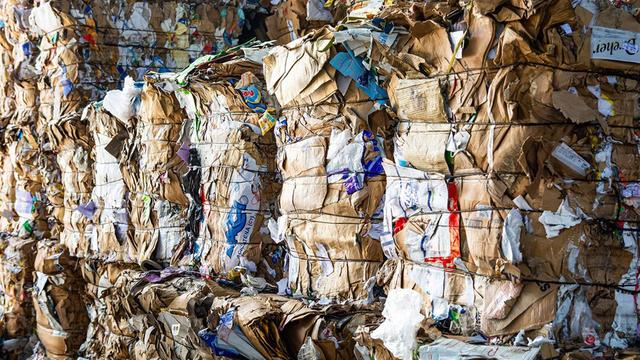Italy launches diaper recycling | The echoes
It is a world first which received the European circular economy prize in April: diapers will now be able to be used again. In Treviso, near Venice, Italy, the first plant capable of recycling them on an industrial scale.
Diapers and sanitary napkins are common products but normally destined for incineration or landfill because they are too complex to recycle given their multiple layers of cellulose, polymers (for absorption), plastic and the fact that they are soiled with organic matter after use.
100 patents filed
The giant Procter & Gamble (Pampers, Tampax…) has teamed up with the Italian manufacturer of hygiene products Angelini to take up the challenge. Research launched by their 50-50 Italian joint venture, Fater, since 2008, has resulted in a technology "which has been the subject of 100 patents", underlines Fater's development manager, Marcello Somma.
After a test period since 2015 on the Contarina waste management site, the public establishment bringing together 50 municipalities in Veneto including Treviso, the third generation of machines is going into production. Contarina carries out selective collection to supply Fater's recycling line, sized for one million inhabitants and 10,000 tons of nappies per year.
Expensive materials
The amount of the investment is not revealed but “the return on investment is three to four years, without subsidy”, assures Marcello Somma. The resale of the cellulose, plastic and superabsorbent polymers recovered from the diapers ensures the financial balance because “the diapers use high quality materials with value. A tonne of virgin superabsorbent polymer is worth 2,000 euros”, continues Marcello Somma. The rest (organic matter and water) goes to the treatment plant.

On the Contarina site, there is no human contact with the diapers. The dumpster dumps them onto a conveyor belt taking them directly to an autoclave where the steam opens them up, cleans them of anything organic and sterilizes them. The recoverable material is crushed and then dehydrated before the three materials are separated. In addition to the classic uses of cellulose, plastic is reused to manufacture various objects (plastic hangers, flexible packaging, etc.) and the superabsorbent polymer becomes coatings used in agriculture for surface water retention.
What about reusing these three materials to redo layers? “We are working on it,” says Marcello Somma. At this stage, the name of the manufacturers buying the recycled materials is confidential, but neither Procter & Gamble nor Angelini are part of it, for their own production. “They are studying the option”, assures Giovanni Fabbri, the general manager of Fater.
A project in the Netherlands
It is therefore not yet circular economy but in any case the technology of Fater, which remains the owner, has a future because "in Italy, 600 municipalities already practice the selective collection of diapers, which represents 10 million tons of deposit," says Giovanni Fabbri. However, it is not in Italy that Fater's next project is located, but in the Netherlands. "The objective is to begin construction of a facility there at the end of 2018, knowing that it will be a different technology from that implemented in Veneto, explains Giovanni Fabbri. In Holland, we will produce in addition to marketable chemicals, by adding an additional phase to the recycling process”. No details there again, Fater fearing leaks. “Our objective is to set up this type of installation almost everywhere in Europe, our process must remain confidential”, explains Marcello Somma.
One thing is certain, "our recycling facility does not need subsidies, it is based solely on an agreement with local authorities to set up selective collection", assures Giovanni Fabbri. In Veneto, Contarina carries it out in establishments such as maternity wards, retirement homes, etc., door-to-door, and has also set up collection points.
It remains to develop selective collection in France. At this stage, France is still struggling to set it up for organic waste and is not on Fater's radar.








